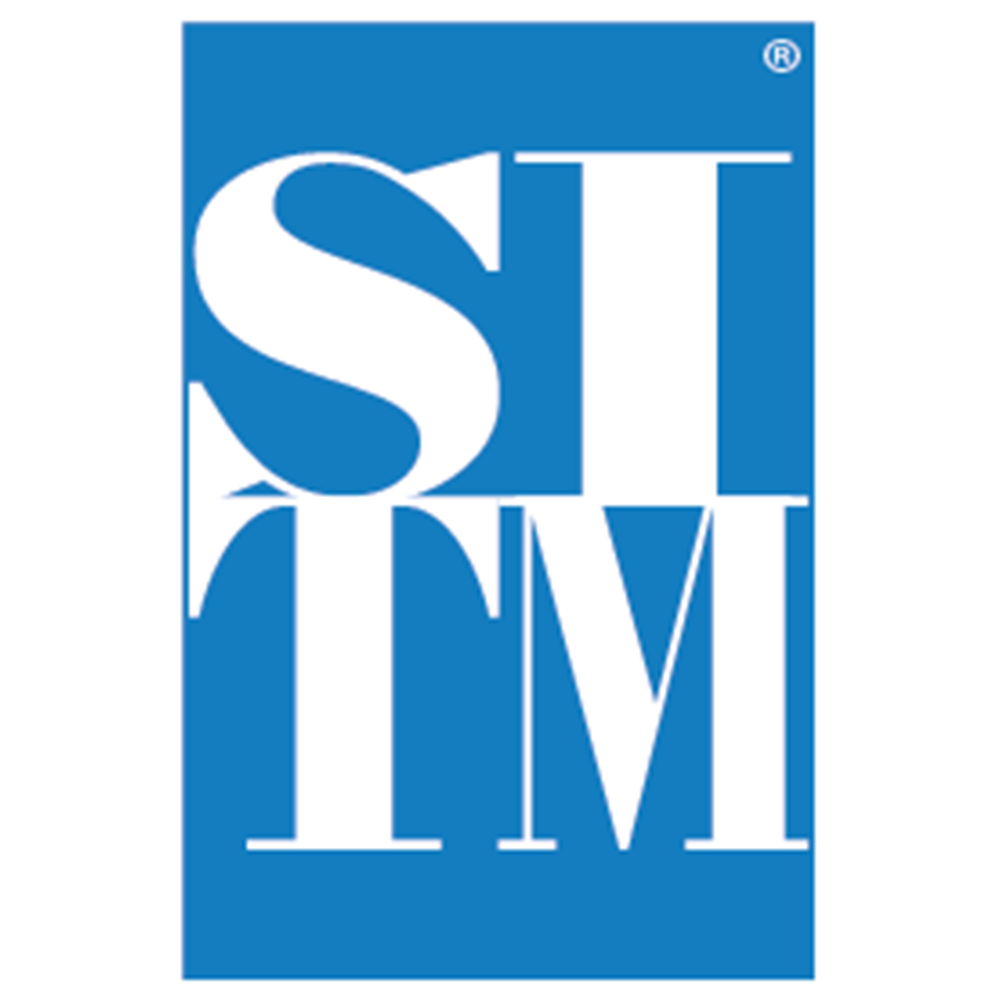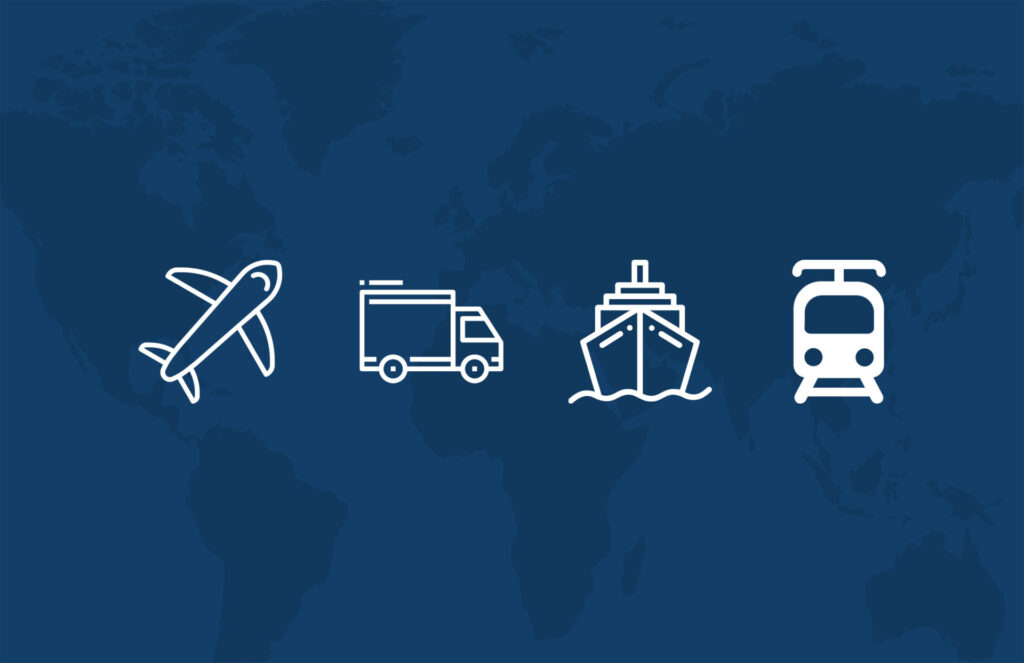The commercial conditions set by the ICC (International Chamber of Commerce) and previously published for use in international trade are called incoterms. In addition to hosting the rules that provide advantages to companies in shipments, their costs can be reduced within the logistics planning to be made. Although there are no mandatory rules, it is possible to put them into legal obligations by including them in the agreement to be made between the parties. These terms are updated from time to time as they are published by the International Chamber of Commerce, the ICC. It can be added in the application procedures together with the follow-up of the renewal rules. It was established and entered into force for the first time in 1936 and was then known as the International Chamber of Commerce. It creates great advantages in arranging the delivery method of commercial transactions to be made between countries. Obligations in Incoterms rules are important in order to eliminate the problems that may occur.
Incoterms Transport Types
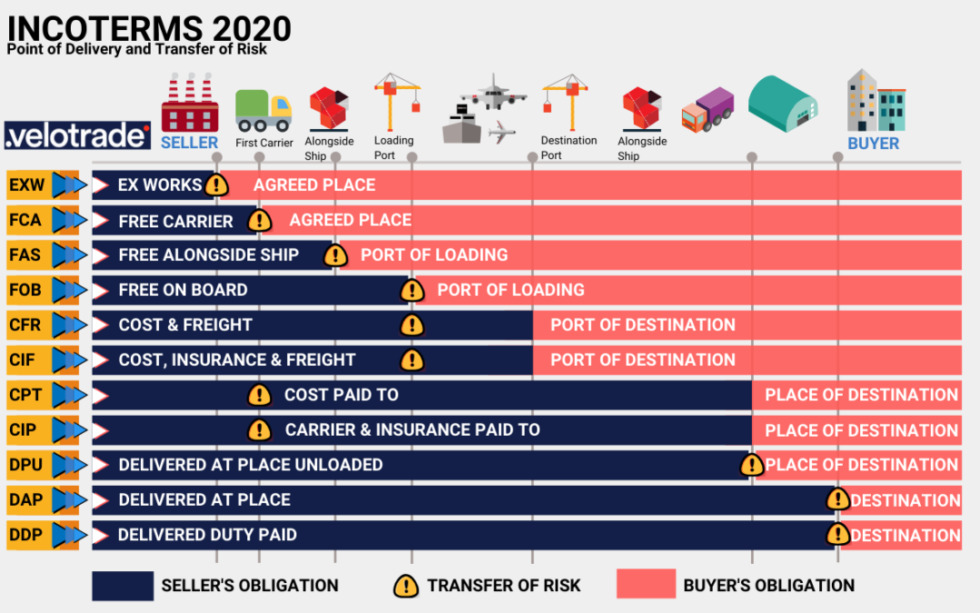
All companies that carry out their commercial activities abroad should have information about Incoterms delivery methods. Regardless of the smallness or abundance of the commercial activity to be carried out, all companies providing foreign commercial services must be informed about the Incoterms conditions and act in accordance with these conditions. The conditions prepared and put into effect by the Paris-based International Chamber of Commerce include determining the delivery method in order to eliminate situations such as disputes, disagreements or legal disputes encountered in international commercial activities. As of 1936, Incoterms, which has taken its place in the commercial activities between countries, has also continued on its way by making many arrangements over the years. The terms published as Incoterms 2020 on January 1, 2020 are used today in their updated form. According to this latest update, 11 modes of transport have been arranged.
Conditions Applicable to All Carriage Types
Incoterms delivery terms have rules that apply to all deliveries, regardless of land, sea or air. We have made room for these rules below.
EXW – ExWork
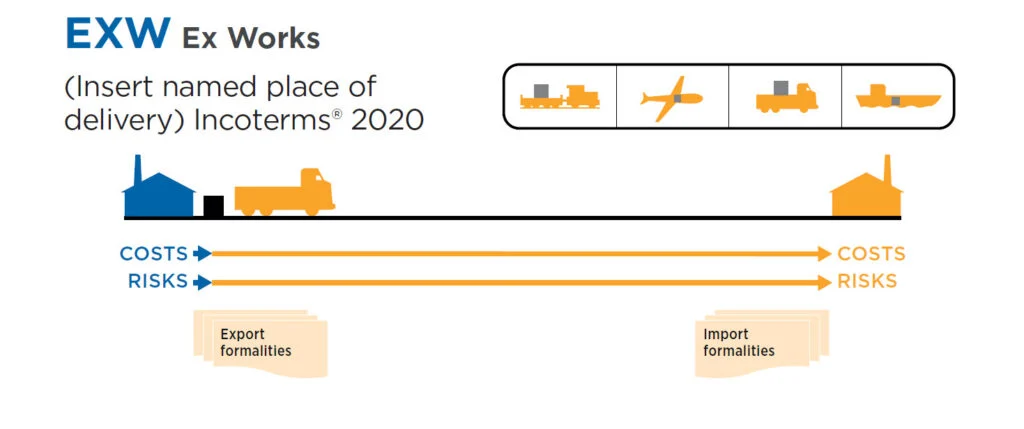
It is the delivery of the products to the buyer as produced and packaged on the specified day. All transactions necessary for issuance are carried out by the buyer.
FCA- Free Carrier (Delivery to Carrier at Predetermined Location)
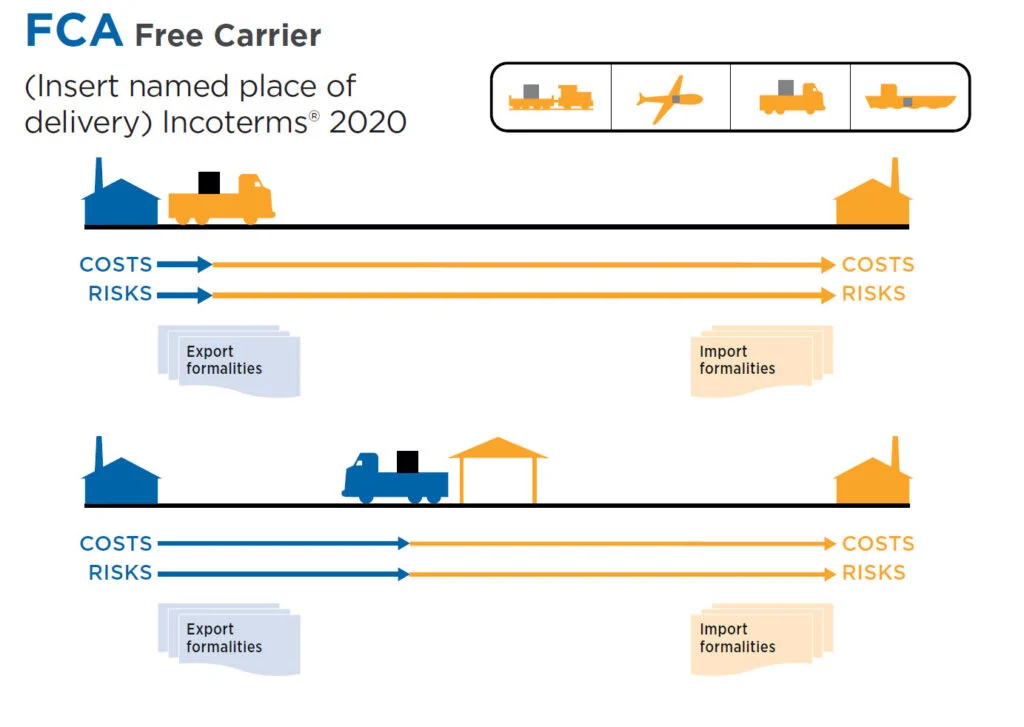
All customs clearance procedures of the produced and packaged goods are carried out by the seller. Delivery is made to the buyer or to the buyer’s agent at the place specified in the agreement between the parties. After this delivery, the seller does not have any liability.
CPT – Carriage Paid To
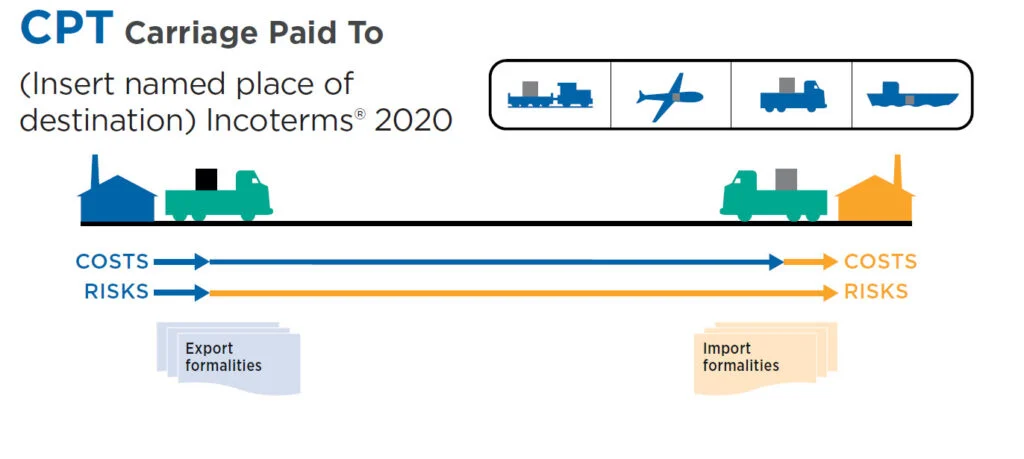
It is obligatory for the seller to deliver the goods at the predetermined place and time with the freight paid. The goods are delivered with the documents whose loading details are specified, after the goods are exited by the seller in good condition. All liability after this time belongs to the buyer.
CIP – Carriage And Insurance Paid
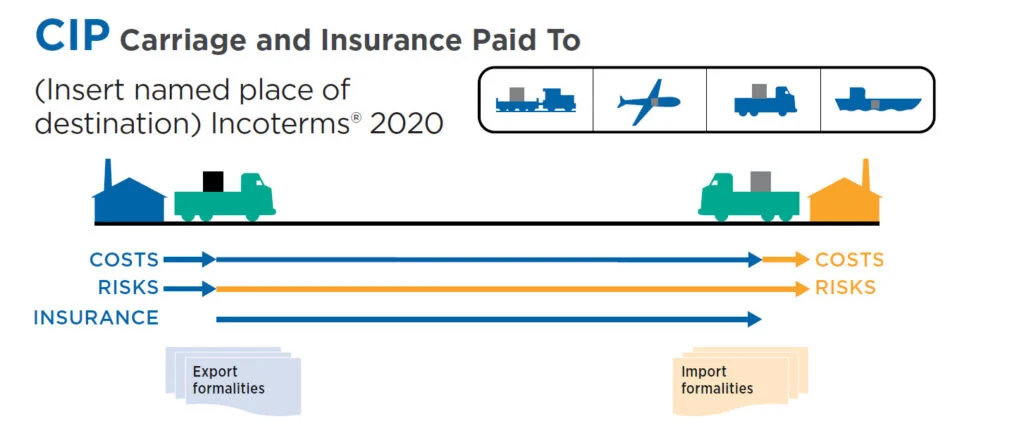
The seller delivers the goods to the transport vehicle, having completed the export customs procedures and insured. At this stage, the freight charge until delivery is also paid by the seller. This is a rule that is also used in road and other modes of transport.
DDP – Delivered Duty Paid
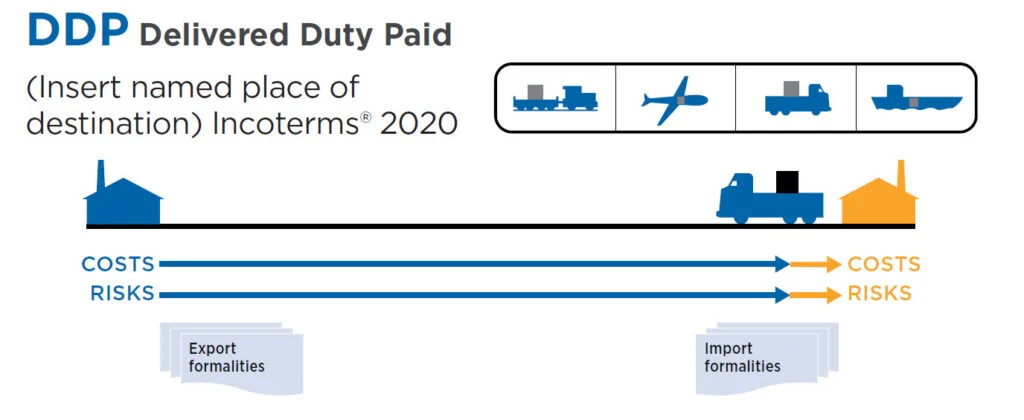
It is a delivery in which the seller performs export and import transactions and also pays customs duties. It is the form of delivery in which the buyer has the least responsibility. All operations except unloading in the factory area are under the responsibility of the seller.
DPU- Delivered At Place Unloaded
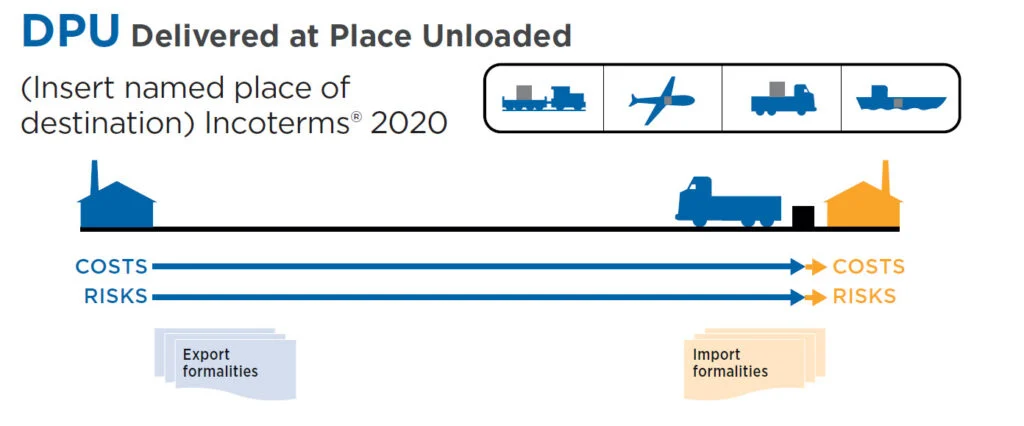
It is the mode of transportation and delivery in which the seller delivers the goods to the buyer unloaded from the vehicle at the destination. The responsibility of the buyer in this delivery process is negligible.
DAP- Delivered At Place
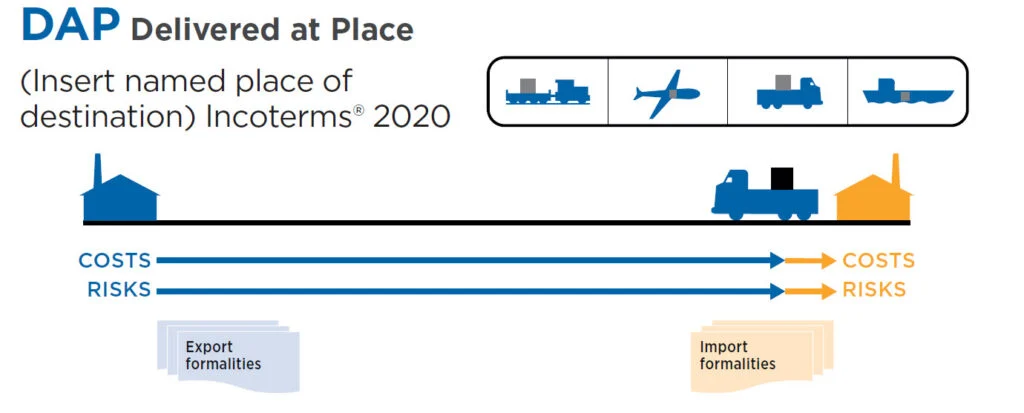
It is the delivery of the goods to the buyer, ready for unloading, at a predetermined place between the buyer and the seller. Customs clearance and all duties, taxes and charges are the responsibility of the buyer. The seller assumes the risk of shipping the goods to the designated point and the risk of damage.
Conditions Applicable to Sea and Waterway
In Incoterms modes of transportation, deliveries can be completed by sea and waterway. The fact that the transportation operations to be carried out by waterway or seaway have a more affordable price option compared to other ways, affects the priority of water transportation in the preferences. In addition to this, the fact that it is safer also affects the trade done by this way to be more. Due to the high amount of maritime trade in Incoterms delivery methods, a place has been made for the conditions and delivery methods to be used only in this field, especially for the transportation made by this way.
FAS-Free Alongside Ship
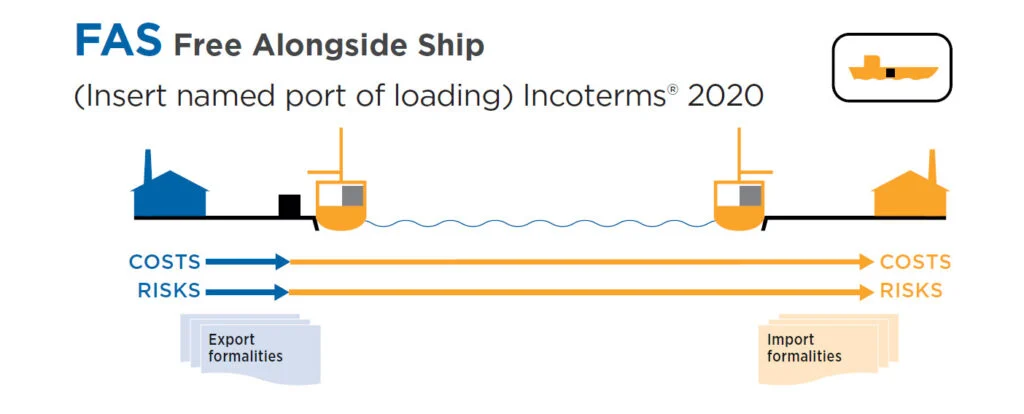
In deliveries made by sea or waterway, the seller is obliged to bring the goods to the ship. If the ship is at the pier, it’s enough for the seller to deliver the goods to the pier. Otherwise, he must deliver the goods to the ship by barge. In this type of delivery, which is used only in sea and river transportation, all damage and expenses pass to the buyer after the delivery of the goods.
FOB – Free On Board
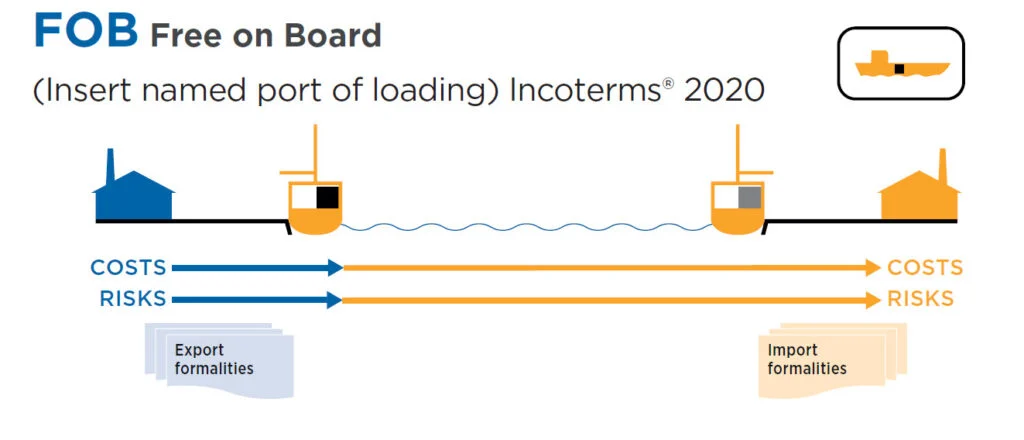
It is the seller’s completion of all necessary documents for export transactions, including customs procedures upon delivery. The process of loading the ship at the predetermined place and time belongs to the seller. The buyer takes the responsibility after the goods are loaded on the ship undamaged.
CFR – Cost And Freight
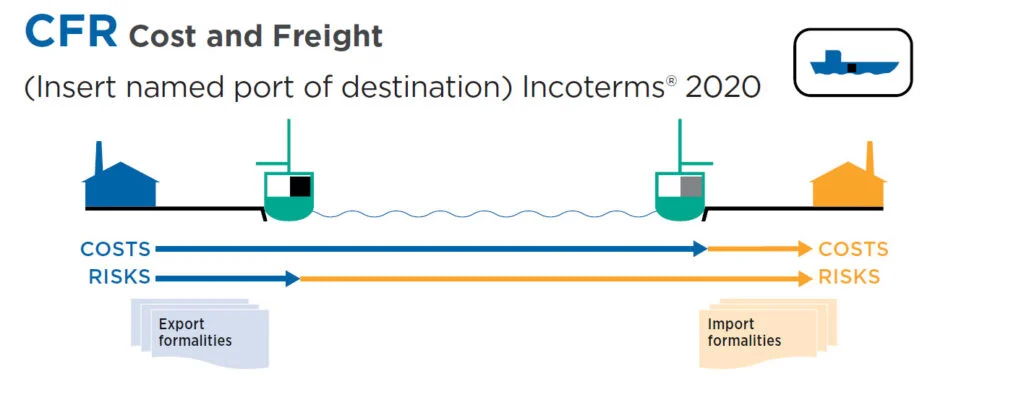
In this mode of transportation, the goods produced and packaged by the seller are brought to the port to be loaded. The seller completes the customs clearance and pays the freight. The seller loads the goods onto the ship. After the goods are loaded on the ship, the liability passes from the seller to the buyer. This mode of transportation and delivery is used in waterway sales transactions such as sea and river.
CIF- Cost, Insurance, Freight
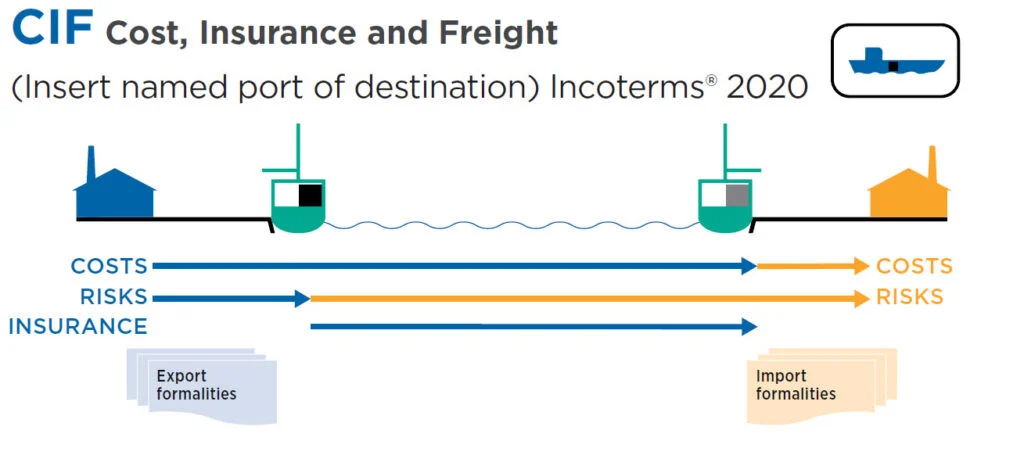
In this form of delivery, which works together with the CFR delivery method, the seller is expected to take out the insurance in addition to the CFR delivery method. In this way of sale, all responsibility belongs to the seller, and at the same time, the seller is obliged to pay the freight fee valid until the destination port of the goods.
Safe Trade with SITM in Compliance with Incoterms
While SITM supports you to meet with many different production and model options with its years of experience, it also carries out studies in accordance with high engineering rules. It supports the possession of quality with all the production and works it carries out by keeping up with the development of technology. The products produced in Turkey are sent to all of Europe together with overseas sales. In all sales activities carried out abroad, studies that comply with Incoterms conditions are carried out. You can visit the Contact section of our website to get detailed information about SITM products and international shipping processes and to get a price quote. Thanks to SITM, the address of international trade, it is possible to make quality and safe shopping.
